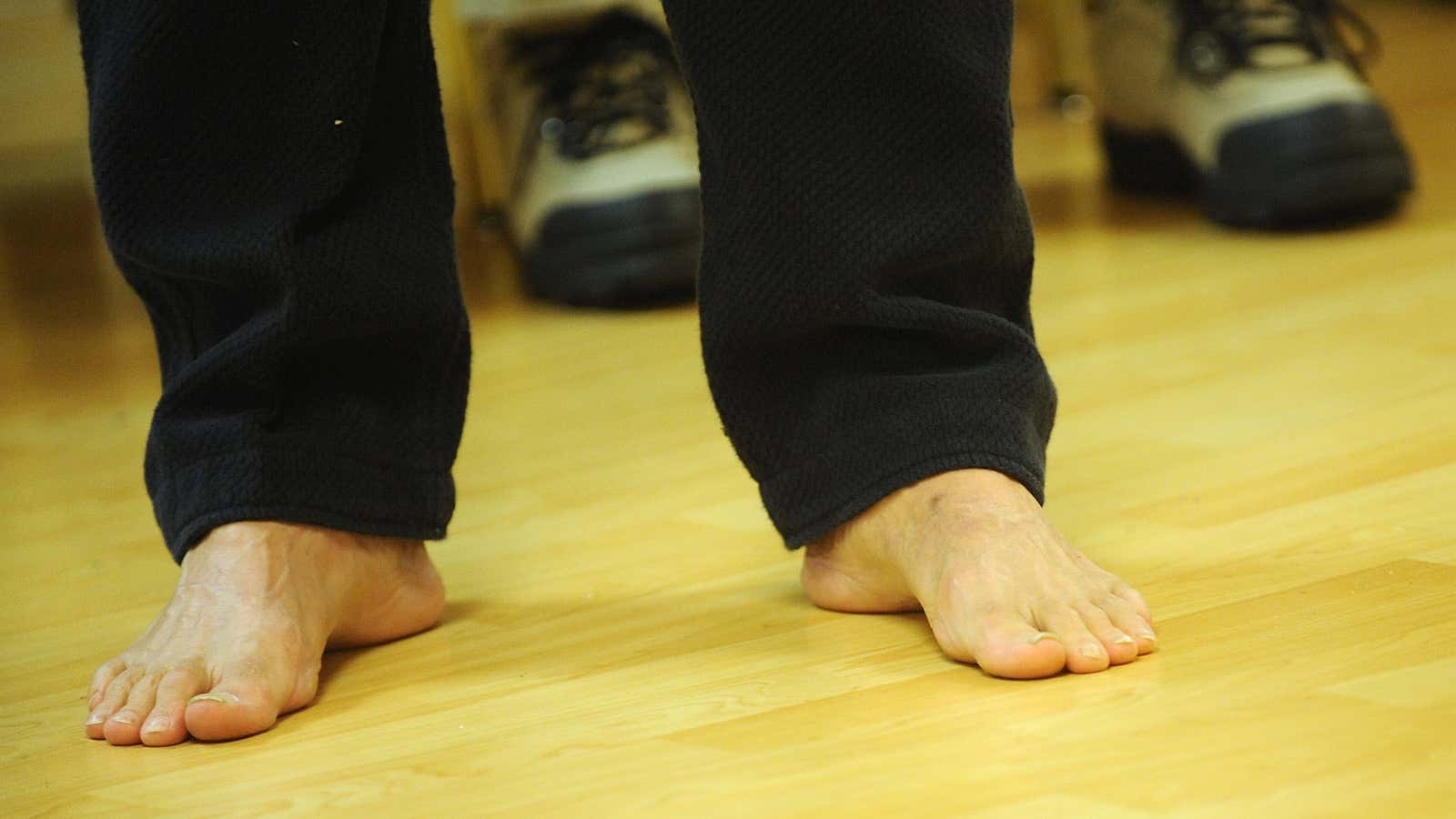Kick off your shoes off and work a while.
Working barefoot may not be mainstream yet, but it’s spread far beyond the street performers, yoga instructors and writers, especially in the summer months. Some librarians and college professors, entrepreneurs and marketing managers wear nothing on their feet. So do some politicians, including British Deputy Prime Minister Nick Clegg, who removed his shoes during a recent heat wave, much to some Brits’s consternation.
About one in four US companies adopt a casual dress code in the summer months, according to the Society of Human Resource Management, and another 36% go with casual year-round. Whether that gives people permission to skip shoes altogether, or just remove them once they’re in their workspace, isn’t clear. It’s difficult to say how many employers allow workers to go barefoot but shoeless staff may feel less stressed and work more productively. There’s a growing movement of adopting a barefoot lifestyle, people who hardly ever don boots or shoes.
“Now there’s a moment: Get out of our shoes,” because they are unhealthy for our feet, said Daniel Howell, a professor of biology at Liberty University who wrote The Barefoot Book in 2010.
“We need to rethink shoes the way we rethought cigarettes,” he said, adding shoes are not as bad as say tobacco on individuals health.
Others encourage staff and clients to shed their shoes at the door. West London Architect Amada Levete is among them. “It keeps the carpet clean,” she told the Guardian.”Also it’s a great leveler, and it’s relaxing; you can put your feet on the sofas.”
Some workplaces allow managers to decide if shoes can be optional when safety doesn’t require footwear.
Yet not every coworker or workplace is ready for shoeless staff meetings. Some 43% of workers say they get offended when people take their shoes off at work, and one-third of them say open-toed shoes are inappropriate office attire, according to a 2012 Adecco survey of 1,010 adults.
Howell remains convinced that as today’s interns and recent college graduates move into management jobs, they’ll bring changes and more barefoot friendly policies to employers. ”We’ll see a much more relaxed attitude toward footwear. The younger ones coming up are much more open to the idea,” he said.
